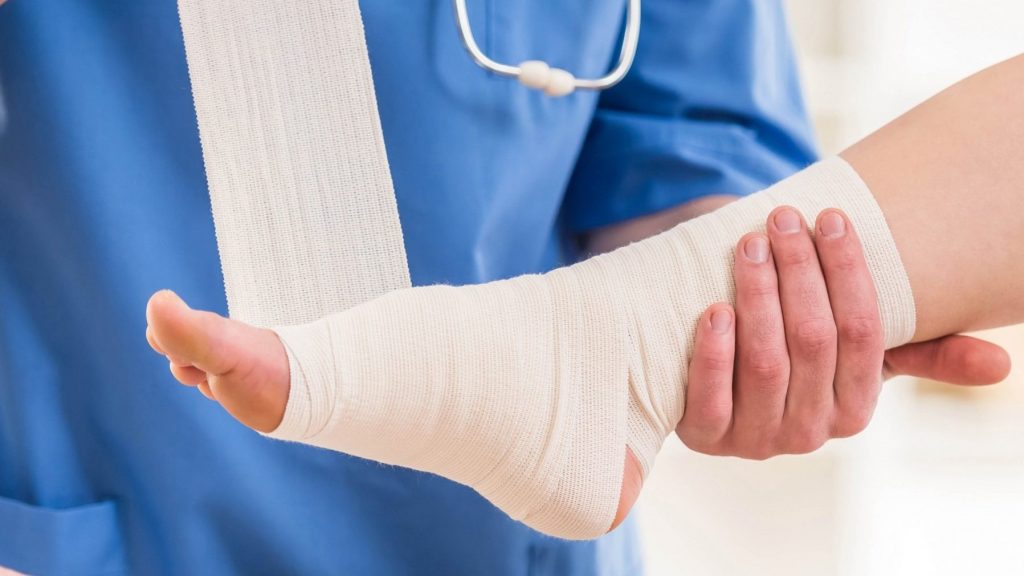FREE Shipping on Orders over $89 with Account – Create One Today!
- (844)-859-9400
- Get Help

The human body has an incredible capacity for healing. For this reason, most assume that any injury they experience will eventually take care of itself. Yet, this isn’t always the case. Chronic wounds can develop, often requiring medical attention to progress through all healing stages. From minor cuts to burns and ulcers, help yourself understand the reasons why your wound may not be healing.
When an injury occurs, your body’s blood cells encourage clotting while drawing growth factors like enzymes and antibodies to the wound. This results in inflammation, which helps purge any present bacteria. From here, new cells assist with tissue regeneration and rebuilding the skin.
Following inflammation, the wound enters the proliferation stage, during which the body constructs new blood vessels and tissues. The flow of oxygen to the area facilitates this process. Then, maturation, or remodeling, occurs when the wound begins to close and the scar becomes less visible. This last portion occurs typically within three weeks of the injury and can take a year, if not longer, to run its course.
Healing times vary across all wounds, with minor scrapes and lacerations going through all stages in about two weeks’ time. If the area doesn’t show signs of improvement within four weeks, you may be dealing with a chronic wound.
Chronic wounds are characterized by specific symptoms. These include a lack of scabs, a darker change in color, a strong odor, discharge, swelling and numbness. What’s stalling the healing process may range from poor care to an underlying health condition.
Poor or insufficient wound care can allow bacteria and other microorganisms to enter and multiply within the wound, causing infection and lengthening the healing process. Signs of infection include swelling, redness and oozing or dry, tight scabbed-over skin.
To avoid this you should apply basic wound care, which involves cleaning the area with soap and water (or a wound cleanser) and applying an appropriate dressing.
Even with vigilant wound care your injury can still experience an infection. This is the most common reason for delay in the healing process. When infection occurs, your body diverts its defenses to expelling the invading microorganisms, rather than repairing tissue.
Infections can be an isolated issue resulting from the presence of viruses or bacteria, or a sign of a secondary condition. Infections occurring near a bone or tunneling through the skin pose the greatest challenges, requiring antibiotics or sometimes surgery to address.
Poor circulation prevents the body’s red blood cells from helping rebuild tissue. Elevating the wound and exercising can assist with improving circulation, but delayed healing may also be a sign of venous or arterial insufficiency, preventing blood from reaching the wound bed. This sign can occur in conjunction with swelling or fluid accumulation within the body.
Especially when you seem to be doing everything right, insufficient nutrition may explain why a wound hasn’t healed. Specifically, the body needs protein and hydration to build new tissue, and your doctor may recommend consuming an above-average amount to aid in the healing process.
Patients living with diabetes, immunodeficiency and chronic cardiovascular conditions often experience poor blood circulation and nervous system issues that can slow wound repair.
In addition, certain medications, such as anti-inflammatories and corticosteroids, lessen the effects of the inflammation phase, which can also delay wound healing.
Fluid pooling underneath the skin or fatty tissue in the body’s lower half — a condition known as edema — can restrict the amount of oxygen reaching a wound. Unchecked edema can further lead to the formation of ulcers. Considering this, compression therapy may be needed to improve circulation and allow the healing process to continue its course.
A wound may experience repeat trauma that slows down or halts the healing process. This can range from bumping into a surface, fabric rubbing against a wound, or pressure on a part of the body due to lack of mobility.
In general, aging skin takes longer to heal. As we age our skin starts to thin out, retain less moisture and develops a diminished inflammatory response. Certain lifestyle factors can speed up this aging process, leading to delays in wound healing. These include:
Sources:
https://www.summahealth.org/flourish/entries/2020/07/6-reasons-why-your-wound-wont-heal
https://www.woundsource.com/blog/wound-healing-reasons-wounds-will-not-heal
https://www.jnj.com/health-and-wellness/why-is-my-wound-not-healing
https://jrmcnd.com/5-reasons-your-wound-wont-heal/
https://www.woundcareinc.com/resources/factors-that-affect-wound-healing
